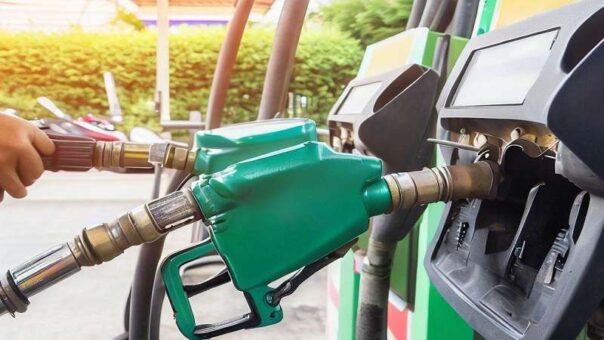Karachi, September 1, 2023 – Pakistan is currently facing an unprecedented challenge as petroleum prices soar to all-time highs, marking a significant economic concern for its citizens and policymakers alike. On August 31, 2023, the caretaker government announced a substantial hike in the prices of petrol and high-speed diesel (HSD), sending shockwaves throughout the country.
The new prices, with petrol reaching Rs 305.36 per liter and HSD at Rs 313.84 per liter, have reached an historic peak, leaving the Pakistani populace grappling with the harsh realities of skyrocketing fuel costs. This surge in prices, crossing the Rs 300 mark for the first time, is not just an alarming development in itself but also raises serious concerns about the impending inflationary pressures on the economy.
The primary driver behind this alarming price hike has been the significant depreciation of the Pakistani rupee (PKR) against the US dollar. Over the past 10 days, the PKR has witnessed a sharp decline, culminating in an all-time low of PKR 305.54 against the US dollar on August 31, 2023. This depreciation has severely impacted the nation’s ability to procure petroleum products at stable rates, as it relies heavily on imports to meet its domestic energy demands.
Pakistan, as a net importer of petroleum products, faces a double-edged sword in this scenario. Despite the adverse effects of elevated petroleum costs on local demand and businesses, the country imported energy products worth a staggering $791 million in July 2023, compared to $1.44 billion during the same month the previous year. This import dependency intensifies the pressure on the government to align price adjustments with the volatile global market fluctuations, which have been particularly unforgiving in recent times.
Regrettably, with the continued depreciation of the rupee against the dollar, it appears inevitable that additional increases in petroleum prices are on the horizon. These economic developments only compound the concerns of Pakistani citizens who are already grappling with economic uncertainties, job insecurities, and rising costs of essential commodities. The government, currently in caretaker status, faces the daunting task of striking a delicate balance between managing the currency crisis and ensuring that the cost of living remains manageable for its citizens.
The nation was anxiously waiting the government’s decision on petroleum prices, but the government disappointed. While tough decisions may be necessary to stabilize the economy, it is crucial for policymakers to prioritize the welfare of the citizens and explore comprehensive strategies that not only mitigate the immediate crisis but also set the stage for sustainable economic growth and stability.
In these trying times, Pakistan needs a thoughtful and pragmatic approach that includes measures to strengthen the rupee, reduce import dependencies, and encourage investment in alternative energy sources. Additionally, transparent communication with the public about the reasons behind price hikes and the government’s plans for the future is crucial to maintain trust and support from the people.
The challenges posed by the current economic situation are formidable, but with prudent decision-making and a focus on long-term solutions, Pakistan can hope to weather this storm and emerge stronger on the other side. The nation’s resilience and unity have been tested before, and it is time to harness that spirit once again to navigate through these turbulent waters.
READ MORE: Pakistan Increases Petrol to Rs 305.36 Per Liter and Diesel 313.84 from Sept 1
